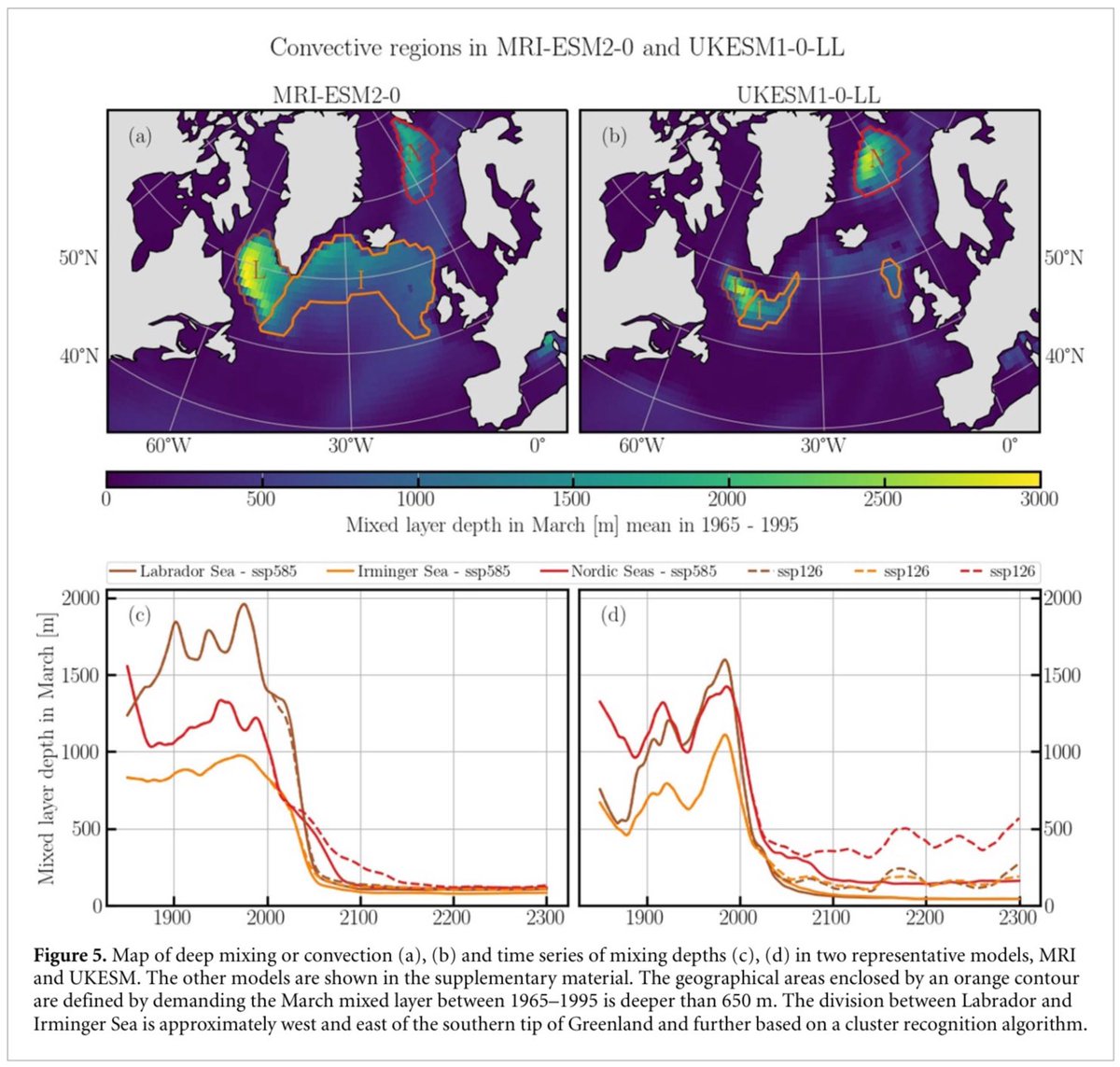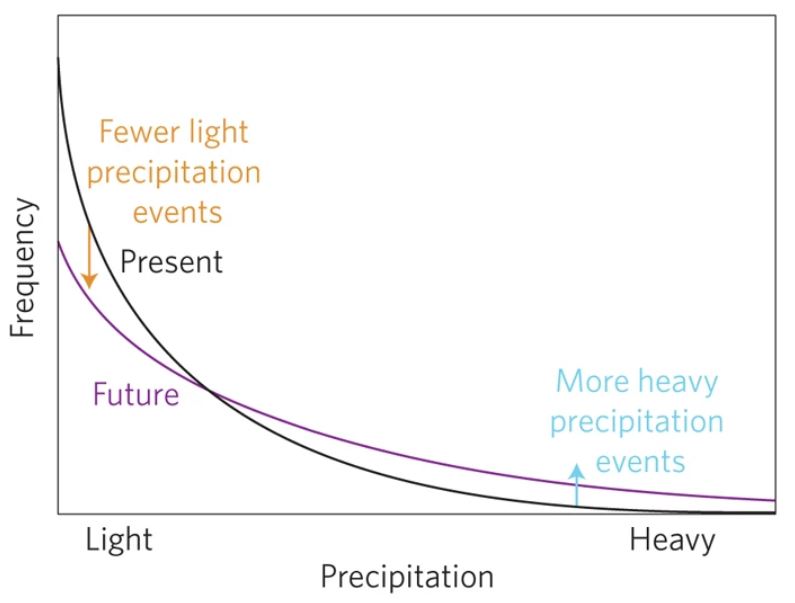Just out: our new paper affirming the unprecedented slowdown of the Gulf Stream System (aka Atlantic meridional overturning circulation, 𝗔𝗠𝗢𝗖) in Nature Geoscience! @NatureGeosci A thread. 1/11 

Lead author Levke Caesar compiled a range of different, published proxy data reconstructions of the AMOC - thanks to all their authors for sharing them. The longest ones go back 1600 years! They represent different AMOC facets: flow speed, water masses, heat transport. 2/11 

These data consistently show an AMOC decline in the 20th Century, with the weakest AMOC state of the whole series in the last decades. This finding is statistically significant in 9 of the 11 time series. 3/11 

This decline is as predicted by climate models in response to #globalwarming & responsible for a particular "finger print" pattern of sea surface temperature change including the northern Atlantic '𝗰𝗼𝗹𝗱 𝗯𝗹𝗼𝗯' or '𝘄𝗮𝗿𝗺𝗶𝗻𝗴 𝗵𝗼𝗹𝗲'. See realclimate.org/index.php/arch… 4/11 

What the last IPCC reports said on the AMOC decline. We know IPCC is very conservative - let's see what they make of the new and stronger evidence in the next report. 5/11 

Here I discuss a couple of further recent studies supporting an AMOC decline - one based on sea level data, the other based on salinity data from the South Atlantic. realclimate.org/index.php/arch…
Graph from @chrispiecuch nature.com/articles/s4146… 6/11
Graph from @chrispiecuch nature.com/articles/s4146… 6/11

This 'cold blob' is another climate model prediction come true, and in the models it's due to human-caused AMOC decline. A discussion of various pro and con arguments (as of three years ago): realclimate.org/index.php/arch…
(The image of observed SST trends is from IPCC AR5.) 7/11
(The image of observed SST trends is from IPCC AR5.) 7/11

How much AMOC weakening do the latest (CMIP6) climate models predict by the year 2100? They find "the AMOC might decline between 6 and 8 Sv (34–45%) by 2100." 8/11 agupubs.onlinelibrary.wiley.com/doi/full/10.10…
And what about the risk of crossing the tipping point for an AMOC breakdown? I discuss that here: realclimate.org/index.php/arch… 9/11 

Here's a nice Washington Post story on our paper, by @chriscmooney. washingtonpost.com/climate-enviro… 10/11
Since it mentions The Day After Tomorrow I've gotta add this clip... I reviewed the movie at the time it came out: pik-potsdam.de/~stefan/tdat_r… 11/11
Should read SAT trends of course. Surface air temperature.
Open access link to our paper:
rdcu.be/cfPxA
rdcu.be/cfPxA
• • •
Missing some Tweet in this thread? You can try to
force a refresh















